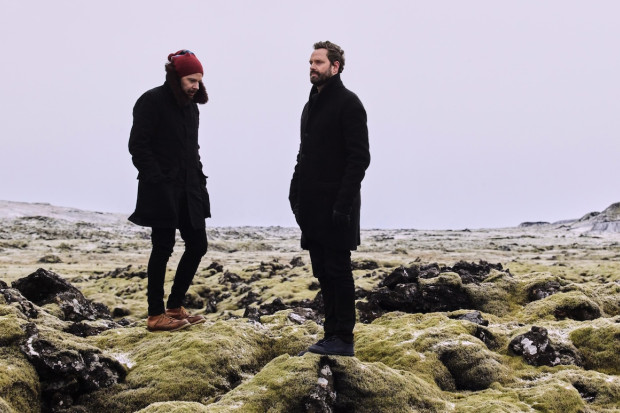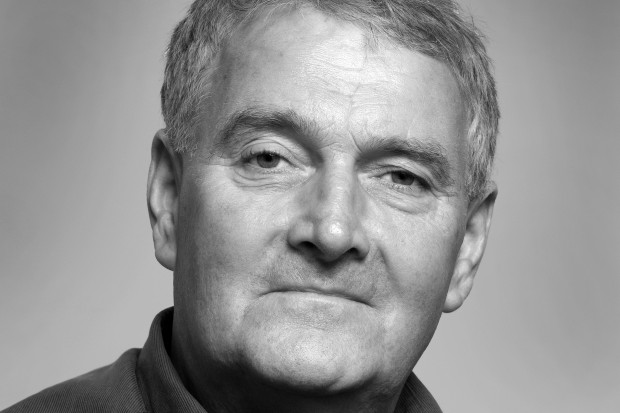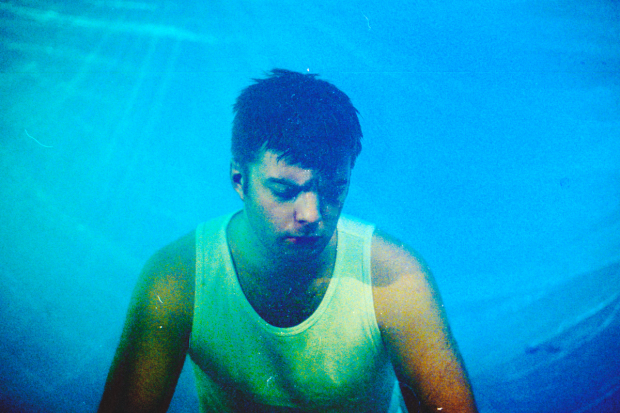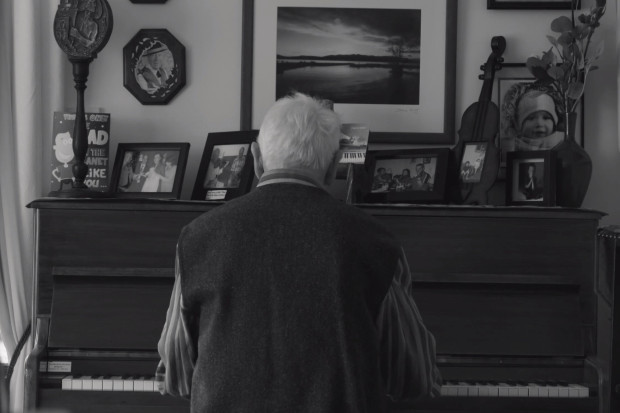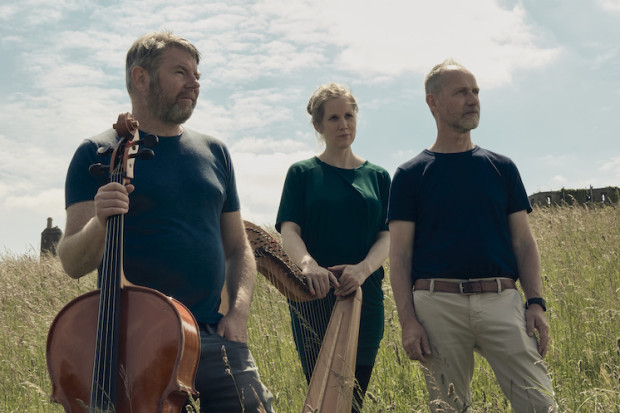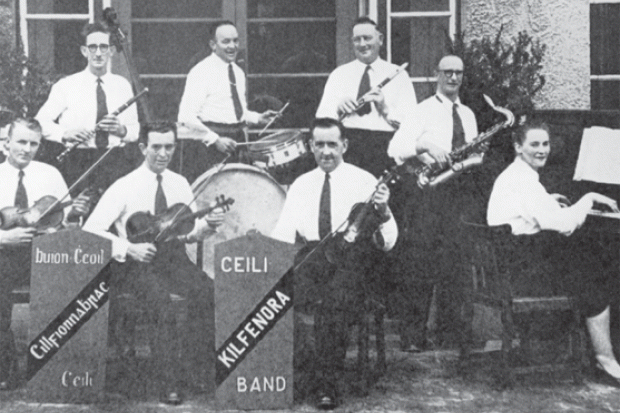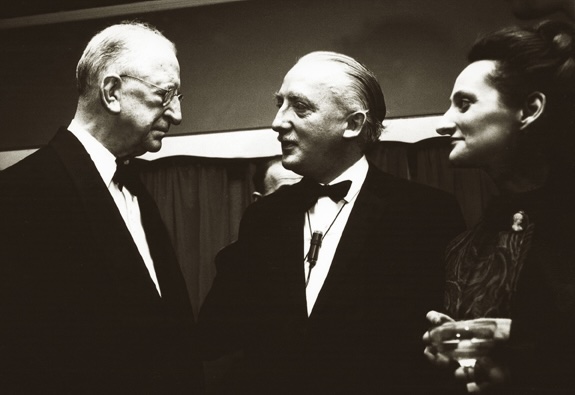
Éamon de Valera, Seán Ó Riada and Ruth Uí Riada at the Gaiety Theatre in 1969. (Photo: Gael Linn)
Enough of the Facile Narratives: Gael Linn’s Crossroads
This is a critical moment for Gael Linn and its relationship to traditional music. Despite its record label having a catalogue of over 300 recordings, plenty of them now classics, ten years ago Foras na Gaeilge designated the organisation’s future role as focusing on education. What then is going to happen to the label?
Gael Linn did not set out to be one of Ireland’s iconic record labels when it started out in 1953. The organisation was many things, all with the aim of revitalising the Irish language. It was when one of its founders, Riobard Mac Góráin, saw that more recordings of traditional music and song were needed for their sponsored Radio Éireann programme that they began issuing singles and albums. This initiative arrived at an extraordinary time. Seán Ó Riada and the folk revival were gathering momentum and Gael Linn was well positioned to meet demand. Their roster included everything from Ceoltóirí Chualann to Clannad. Mac Góráin ran that label for 43 years.
Today, however, Irish traditional music has no full-time, fully staffed, fully resourced record label that could provide the current generation with the same opportunities that former generations had. I highlighted this issue in Comhar magazine last year, and credit is due to the new Gael Linn CEO Réamonn Ó Ciaráin who responded by issuing a call for submissions on the future of the label last summer. However, we still do not know what the future holds for the catalogue, or if Gael Linn can seize the opportunity of establishing a full-time label for traditional music today.
We do have a further boon to Gael Linn’s musical legacy, however, in a new Aniar TV documentary that was broadcast on St Stephen’s Day on TG4. Gael Linn ag 70 focused almost entirely on the musical side of the organisation’s work. Commenting on the programme, the producer and music director Dónal O’Connor, also a fiddle player, said, ‘Amongst the varied aspects of Gael Linn’s work over the years, I believe that the music and the music label are perhaps the most significant and enduring, and we decided to focus on that in this celebratory programme.’
What O’Connor says may be true, but this approach is still surprising: we don’t get to decide what the history of an organisation is. Gael Linn is an Irish-language organisation that fell into the musical world, and the documentary doesn’t fully address its multi-dimensional activities over seven decades, never mind its newly designated role solely in education.
If this is a circuitous attempt to highlight the label at this critical juncture, then we may well be grateful for that, but there are lacunae in the approach.
Reaimaginings
Gael Linn ag 70 begins with a commissioned poem by Megan Nic Ruairí, one of the talented young singers who featured in the Bláth na hÓige series last year. It then moves to Iarla Ó Lionáird who suggests that every fifty years a country needs to reinvent itself and that there was something of that spirit in the 1950s. He compares the lack of respect for Irish-language arts in that decade to the buoyant situation today. How did we get here, he asks. This sets the stage for Gael Linn.
Mairéad Ní Mhaonaigh and Moya Brennan reflect on how different their lives might have been were it not for the fact that Riobard Mac Góráin asked them to make albums. From those Gael Linn recordings – Clannad 2 in 1974 and Ní Mhaonaigh’s Ceol Aduaidh with Frankie Kennedy in 1983 – flowed opportunities to perform abroad and the development of a career in music.
After this introduction, Gael Linn ag 70 briefly turns to footage from the 1950s and outlines the setting up of the organisation, but it is one of the extraordinary oversights of this programme that the key founder, Dónall Ó Móráin, who was its chief executive for years and the driving force behind many of its activities, is not even mentioned once throughout the documentary. And Mac Góráin, who clearly has played a huge role, is referred to in one solitary aside.
How is it possible not to give more attention to these visionary men in this programme? It is equivalent to making a documentary on Claddagh Records without mentioning Garech de Brún! It raises serious concerns about the research that took place.
The documentary nonetheless then settles into a steady format, with short interviews on the legacy of Gael Linn followed by related musical performances.
Mary Bergin recalls recording, in a single day, her debut album, which became the best-selling Gael Linn record of all time; broadcaster Áine Hensey highlights how the organisation was not just focusing on traditional approaches but released a range of innovative albums; former CEO Antoine Ó Coileáin talks about the organisation’s all-Ireland approach; singers Gráinne Holland and Pádraigín Ní Uallacháin discuss its impact on the North and the recordings of the great singer Albert Fry; Conamara sean-nós singer Sarah Ghríallais discusses the positive impact Gael Linn had on Gaeltacht artists; and Liam Ó Maonlaí, Rossa Ó Snodaigh and Colm Mac Con Iomaire discuss participating in the Slógadh school competitions, which were set up by the organisation.
There is also a performance by the contemporary Irish-language song group Imlé with Ríona Sally Hartman and a vibrant set by the young group Binneas, last year’s winners of the Siansa competition, another initiative by Gael Linn.
Historical gaps
In the list above, one can see the deep cultural impact Gael Linn has had. What is missing though is some historical expertise to put the contributors’ comments in context. Ó Coileáin makes the point that music and song were flourishing in the Gaeltacht in the 1950s. Is that true or even verifiable? The situation was likely more nuanced given the emigration and poverty of the time. Ó Coileáin’s comments also counter Ó Lionáird’s remarks at the beginning.
In another section, Hensey refers to the 1968 Gael Linn single ‘An Damhán Alla’ sung by Conamara singers Tomás Mac Eoin, Tomás Mac Con Iomaire and Máirtín MacDonnchadh and says ‘Cad as a tháinig sé sin?!’ (‘Where did that come from?!’) as if there was no answer. It came of course straight from the influence of American country music on the Gaeltacht through emigration, and arguably through the new cultural confidence found in the Gaeltacht civil rights movement of the time, but no such context was provided. Ó Maonlaí, Ó Snodaigh and Mac Con Iomaire then unfortunately perform a version of the song complete with comic Conamara accents – the exact stereotype that Gael Linn was trying to counter by issuing the single in the first place.
Gael Linn ag 70 is presented as a ‘celebratory programme’, which is understandable. Gael Linn should be celebrated, but this is no ordinary organisation, and its work over the past seventy years connects organically with the work that TG4 has carried out in music and with the language since the 1990s. These one-hour TG4 music specials are important, and there were a number of them on the station over Christmas, but the format can wear thin. Gael Linn deserves a more deeply researched series so that we can fully understand the role the organisation has played, and to ensure that the record label prospers into the future.
Gael Linn ag 70 ends – somehow – with footage of TG4’s Oscar-nominated film An Cailín Ciúin and the director Colm Bairéad saying how Irish-language arts are thriving today, although Gael Linn is not connected to the film and the record label has lacked sufficient resources for years. So enough of these facile narratives! Gael Linn deserves better, and TG4 and Aniar TV can do better.
To view Gael Linn ag 70, visit www.tg4.ie.
Published on 3 January 2024
Toner Quinn is Editor of the Journal of Music. His new book, What Ireland Can Teach the World About Music, is available here. Toner will be giving a lecture exploring some of the ideas in the book on Saturday 11 May 2024 at 3pm at Farmleigh House in Dublin. For booking, visit https://bit.ly/3x2yCL8.










